Several dozen princes from abroad passed through the court of medieval Poland. Everyone was begging for the same:"Help me get the throne!" No wonder that they came to Poznań, Gniezno or Kraków with this request. Few were as skilled in overthrowing kings as the Piasts.
Czech Republic. If not a drunk, he's a sadist
Bolesław the Brave managed to bring two candidates to the Czech throne. They were not, however, noble rulers driven from the country by their wicked subjects. On the contrary. Our ruler seemed to be installing delayed fire bombs in Prague:first an alcoholic, then a psychopath.
The year 1002. Czech was ruled at that time by prince Bolesław III the Red, a cruel ruler even against the background of contemporary realities. He had one of his brothers castrated, another he tried to strangle in a bathhouse. In the end, tired of his ruling style, the subjects rebelled and expelled the sadist.
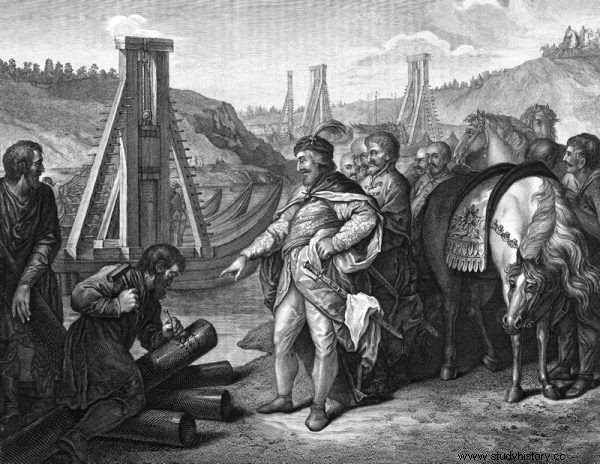
Bolesław the Brave not only hammered border posts on the Elbe and Saala, but also placed other degenerates on the Czech throne ... (image from the Vilnius Album by Jan Kazimierz Wilczyński, public domain).
Bolesław the Brave, Rudy's namesake and close cousin, was already prepared for such a circumstance. There was a certain Władywoj at his court. It is not known what place he occupied in the family tree of the Czech Přemyslid dynasty. Good enough to be eligible for the throne, anyway.
In fact, it was an ideal candidate. The Polish prince expected him to be easy to manipulate - on the one hand, he was indebted to Poland for hospitality, and on the other hand, he did not promise to be an independent statesman. If you believe the chronicler Thietmar - and there is no reason not to believe him in this case - Władywoj was an alcoholic. He drank day after day.
The Polish ruler was severely disappointed. The Piast protégé quickly turned out to be ungrateful and paid tribute to the king of Germany. It is true that he died at the beginning of 1003, but another Czech ruler, Prince Jaromir, was also not favorable to Poland. Chrobry had no other option:it was necessary to bring his man to the Prague throne.
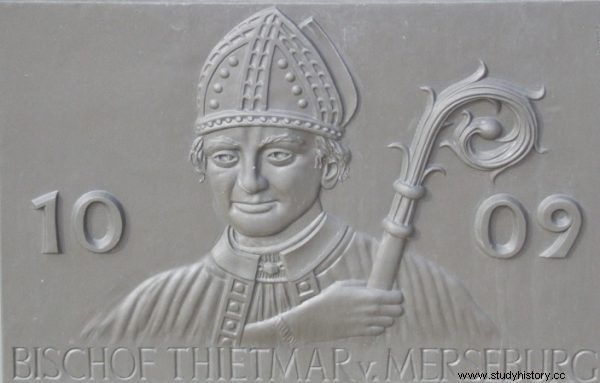
Bishop Merseburg Thietmar was well versed in the matters of Germany's eastern neighbors - including Vladivoy's drunken excesses. A plaque on the city fountain in front of the Church of St. Stefan in Tangermünde (photo Harald Rossa, license CC BY-SA 3.0).
The prince had only one contender at his disposal. It was the aforementioned Bolesław the Red, who, after his expulsion from Bohemia, finally ended up at the court of his Polish cousin. Better such a candidate than no one, thought Chrobry, and helped his kin regain the throne. He was cynically hoping for the Czech-Czech war to flare up. And he was not mistaken .
Rudy assured his subjects that he was now a man of consent. He invited recent political opponents to a feast. The guests were forbidden to bring weapons with them, of course for reasons of safety. While drinking, the Czech prince killed his brother-in-law (yes, brother-in-law - all historians write that his son-in-law, forgetting that the chronicler Thietmar used the word gener (son-in-law) for brother-in-law). It was the signal to start the slaughter.
Shortly thereafter, the legation of Czech magnates appeared before Bolesław the Brave, asking for help in the fight against the psychopath. The Polish prince invited Rudy for talks to Krakow. He made a wonderful feast, and during the night he had a relative imprisoned and blinded . It was then a popular method of eliminating political rivals.
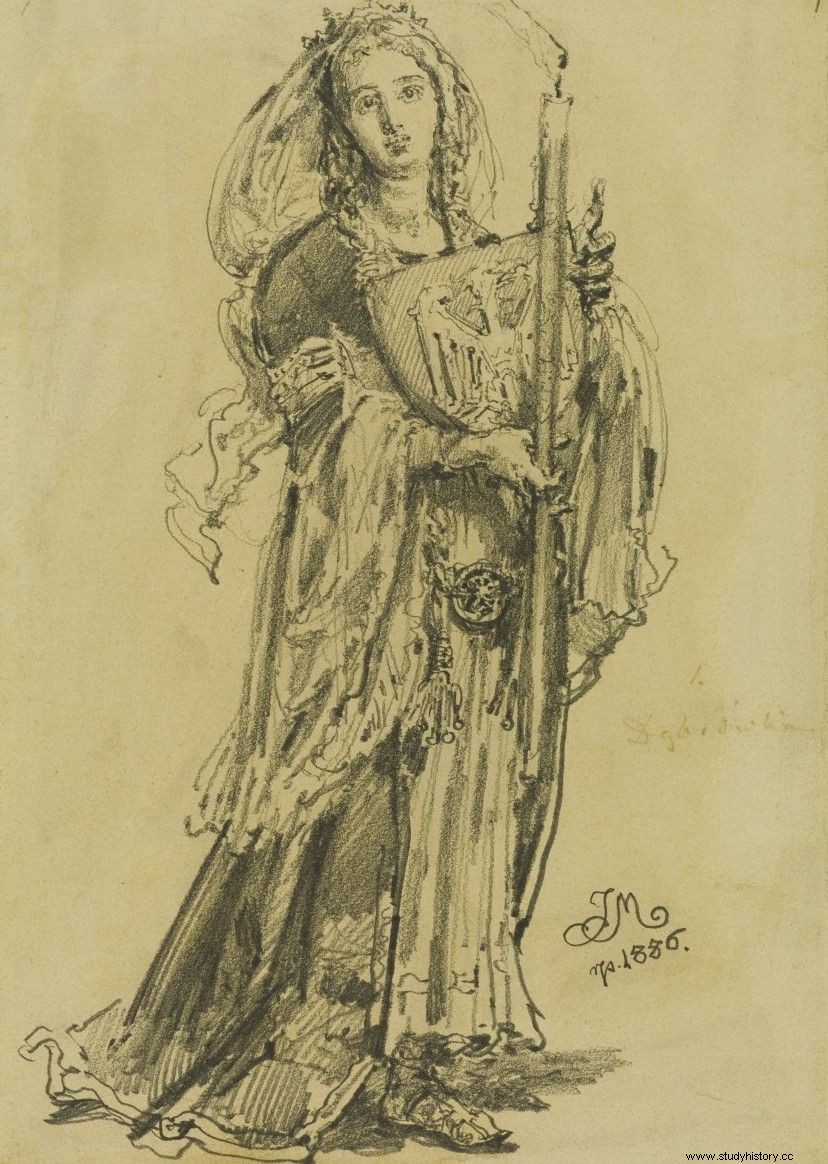
Bolesław the Brave, as the son of the Czech princess Dobrawa, believed that he had sufficient rights to the Prague throne (painting by Jan Matejko, public domain).
The day after the bloody party at Wawel, Bolesław the Brave left for Prague, whose inhabitants unanimously proclaimed him the prince. Since all the opponents were eliminated, our Piast - after all, the son of the Czech princess Dobrawa - had the greatest rights to the throne.
The chronicler Thietmar writes about the Prague people that always rejoiced at the new reign. It is perfectly understandable if you know the scenario of the enthronement of the sovereign there. On this solemn day, several thousand coins were usually thrown through the bars of the upper court. In view of this perspective, an ordinary inhabitant of the Czech capital did not care whether Władywoj, Bolesław the Red or Chrobry became the prince.
In March 1003, the Polish prince was the real winner. All competitors were eliminated from the game for the Czech throne, and most importantly, after several years of efforts the Piast monarchy absorbed the Przemyślid state . The success was as spectacular as it was short-lived - in 1004 Poles had to leave Prague. But Chrobry showed that you can climb the throne of a neighboring country on the pretender's back.
Hungary. Sabotage of the Łokietek
In 1290, a mysterious stranger from Hungary arrived in Małopolska. Princess Kinga of Kraków recognized him as her nephew, Prince Andrzej, the rightful heir to the Hungarian throne. Admittedly, according to the official version of this story, the Magyar prince died 12 years earlier, and the newcomer was supposed to be a brazen trickster - but who knows what it really was.
Anyway, my own candidate for the Hungarian throne was a real treat . Divided into districts, Poland installs its king at the "nephews", where both the Germans and the Czechs, and even the rulers of the Apennine Peninsula, tried to win theirs - it was an ambitious but nice-looking scenario.
With the above in mind, Duke Przemysł II, residing in Krakow at that time, gave Andrzej his support and allowed him to live at the ducal court in Chroberz (today's Świętokrzyskie Province).
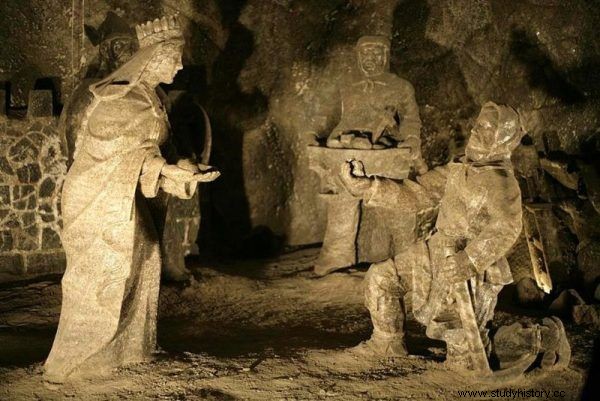
Saint Kinga. We owe her not only the salt in Wieliczka, but also the scandal with the Hungarian self-proclaimed man (photo:Cezary Piwowarski, license CC BY-SA 3.0).
It's just that the whole intricate plan fell into the head at the turn of October and November 1290. The killers, sent by another candidate for the Hungarian crown, drowned Andrzej in Nida. An interesting fact is that the Polish district prince Władysław the Short was involved in the crime . Reason? This other candidate was more suited to the future Polish king.
Earlier actions of the Piasts in the interests of their pretenders were more effective. Somewhere between 1030 and 1042, Bela, the prince of the Hungarian Arpad dynasty, arrived in Poland. He received the hand of a Polish princess - according to a later message, it was a reward for killing a Pomeranian prince in a duel.
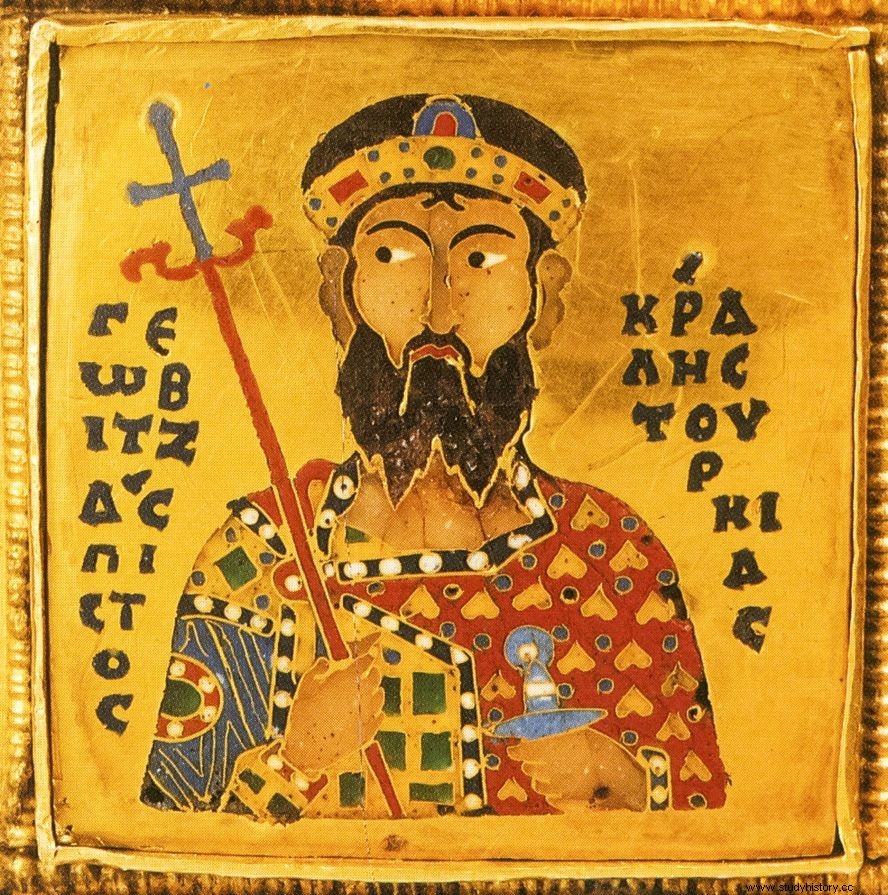
Hungarian King Geza I - one of the many rulers who owed their throne to Poles (source:public domain).
For some time he lived in his wife's homeland, and then he returned to Hungary. There, Bela first received the third part of the monarchy, and in 1060, with the help of Bolesław II the Generous, he reached for the crown. Also Bela's sons, Gejza I and Władysław the Holy, born in Poland by the way, owed the throne to the Polish ruler.
Poland in (today's) Berlin
The Piasts certainly interfered more than once in settlements between the Polabian Slavs, who lived in the areas between the Elbe and the Oder. We only know one such action in detail, but which one! As a result, managed to move the western border of Poland to such an extent that if it had survived - today we would have the Berlin voivodeship and the Potsdam poviat .
And it was like this. In 1150, Prince Przybysław-Henryk, the ruler of the Stodoran tribe, died. He had no children, and in his will he handed over his state to Margrave Albrecht Niedźwiedz. The prince's last will did not matter much, because the legal heir to the throne was his relative, Jaksa. Anyway, it is doubtful whether testamentary inheritance was in force among the Slavs at that time.
Jaksa was not an anonymous prince. He lived in Poland and was one of the ten most important people in the Piast state. He owned many estates, and his wife was the best party in the country:the daughter of the mighty palatine Piotr Włostowic.
The princes Bolesław Kędzierzawy and Mieszko the Old, who ruled Poland at that time, had a real dilemma. On the one hand, Albrecht Niedźwiedź was their proven political ally, on the other, his man at the head of the Polabian tribe meant the expansion of Polish influence to the west ...
In the end, they decided to support Jaksa militarily and were not disappointed. This one mastered the lands of Stodoran without any problems. He ruled there for seven fat years as a Polish vassal. In 1157 it was ousted by the Germans, but kept the eastern part of the country. He chose Kopanica, later Köpenick, for his new headquarters. Today it is one of the districts of Berlin.
Tearing the beard, Danish prince and Poles attacking England
A lot of potential pretenders to the throne passed through the Piast court. Many were helped, some were treated only as a scarecrow for the neighboring monarchs. Sometimes Polish rulers made an impression on their protégés to whom they owed their position. Bolesław II the Szczodry was extremely arrogant, placing his cousin Izjasław on the Kiev throne and then publicly insulting him by tearing his beard.
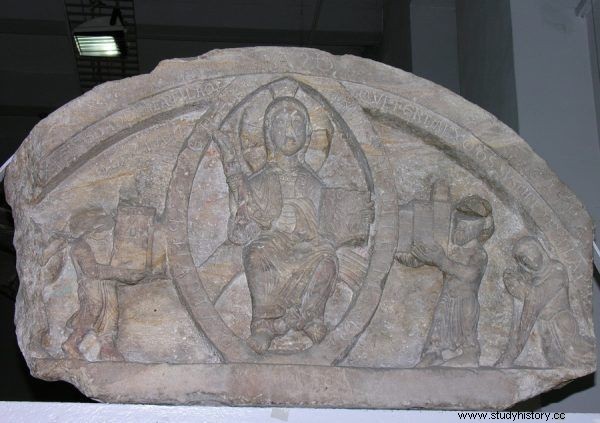
Jaksa's activity in Poland left many traces. The foundation tympanum of the abbey in Ołbin in Wrocław, on the right, Jaksa and his wife, daughter of Piotr Włostowic are kneeling (photo Bonio, license CC BY-SA 3.0).
Most of the contenders to whom the Piasts gave shelter and support came from the closest neighborhood:from Bohemia, Russia and Hungary. There were, however, newcomers from more distant lands. For example, in 1150 Poland was visited by the Danish prince Knud Magnussen (better known as Canute V), grandson of Bolesław the Wrymouth on the distaff side. He counted on the support of his mother's brothers.
This time our princes were not interested in giving him real help. No wonder - there was such a bloody civil war in Denmark that it was only a matter of a few years before the local Estridsen dynasty self-annihilate. There was no ruling family in the history of medieval Europe who would have fought with such intensity.
There are some indications that Bolesław the Great was even involved in the fight for the throne of England. It was in 1069. England was ruled by William the Conqueror, Duke of Normandy, for three years, that is, from the time of the famous Battle of Hastings. It was without a doubt a usurper.
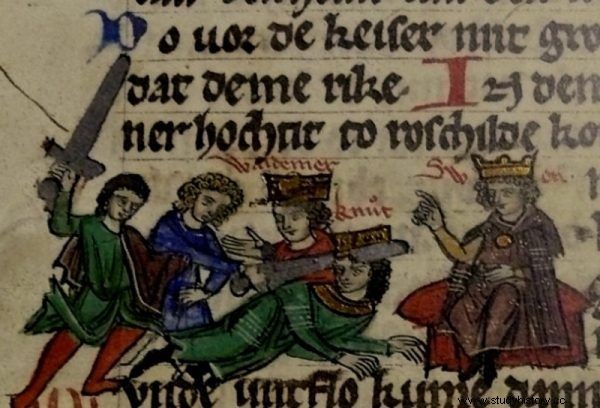
Kanut V did not receive Polish support ... and after a few years he was murdered during a "conciliation meeting" (source:public domain).
By law, the throne belonged to Edgar Etheling. The latter's claims were supported by the Danish king Swen Estridsen, who organized the great invasion of England. According to one of the chroniclers, Poles were in the Danish army. This gave rise to a hypothesis about the then Polish-Danish alliance. In the end, however, William the Conqueror held onto the English throne.
Usually, the greatest triumphs in Polish history are associated with the era of the Polish-Lithuanian Commonwealth. But the Piasts were also able to push themselves to the four corners of the world - either by pushing the borders of their country or securing the throne to their candidates.
***
Michael Morys-Twarowski proves that we should not focus on the vision of our history full of failures and failures. Texts about a disastrous geopolitical situation and dangerous neighbors should finally be put aside. In the pages of the Polish Empire, the author boldly and eloquently describes the times when the Republic of Poland really was a superpower. It's high time to admit it.
